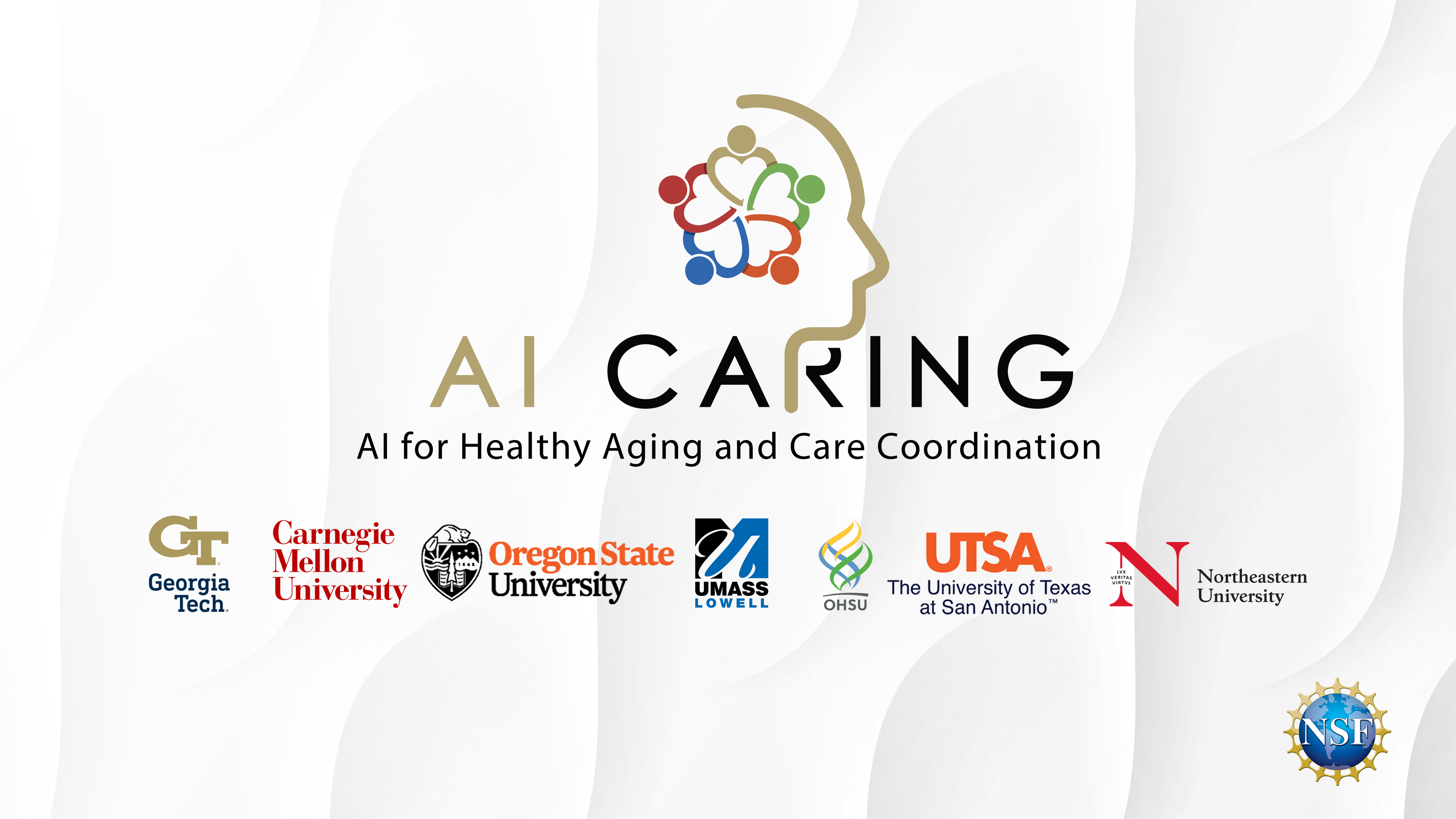The AI Institute for Collaborative Assistance and Responsive Interaction for Networked Groups (AI-CARING) is a National Artificial Intelligence (AI) Research Institute funded by the National Science Foundation.
The AI-CARING mission is to develop the next generation of personalized collaborative AI systems that improve the quality of life and independence of aging adults living at home.
Our Institute seeks to serve older adults and their network of care partners – family, friends, community members, and professional healthcare and social service providers. We take a systemic perspective, analyzing the complex social and professional connections that form a care ecosystem and social safety net around individuals, families, and communities.
We ground our research by working with older adults diagnosed with Mild Cognitive Impairment (MCI), their informal caregivers, family and professional care providers, extending to work with older adults aging with other cognitive and physical impairments.
Our vision for AI-CARING addresses the full spectrum of daily life activities and contributes to AI systems that learn personalized longitudinal models of user behavior, recognize and adapt to changing user abilities, goals, and values, as well as the complex interpersonal relationships governed by those values. Building on such models, we envision networked teams of agents that provide coordinated assistance through personalized and value-driven interaction.

AI-CARING is a collaboration between Georgia Tech, Carnegie Mellon University, Oregon State University, the University of Massachusetts Lowell, Oregon Health & Science University, the University of Texas at San Antonio, and Northeastern University.
The project is funded by the National Science Foundation, with Amazon and Google as AI-CARING's industry sponsors.
The Institute serves as a nexus point for collaborative efforts across academia and industry. In addition to advanced research, these collaborations actively build the next generation of talent for a wide, well-trained workforce. The institute supports a wide range of workforce development, education, outreach, broadening participation, and knowledge transfer programs designed to disseminate knowledge about, and enthusiasm for, the development of interactive AI systems.
This project is supported by National Science Foundation under Cooperative Agreement 2112633. Any opinions, findings, conclusions, or recommendations expressed in this material are those of the authors and do not necessarily reflect the views of the National Science Foundation.
